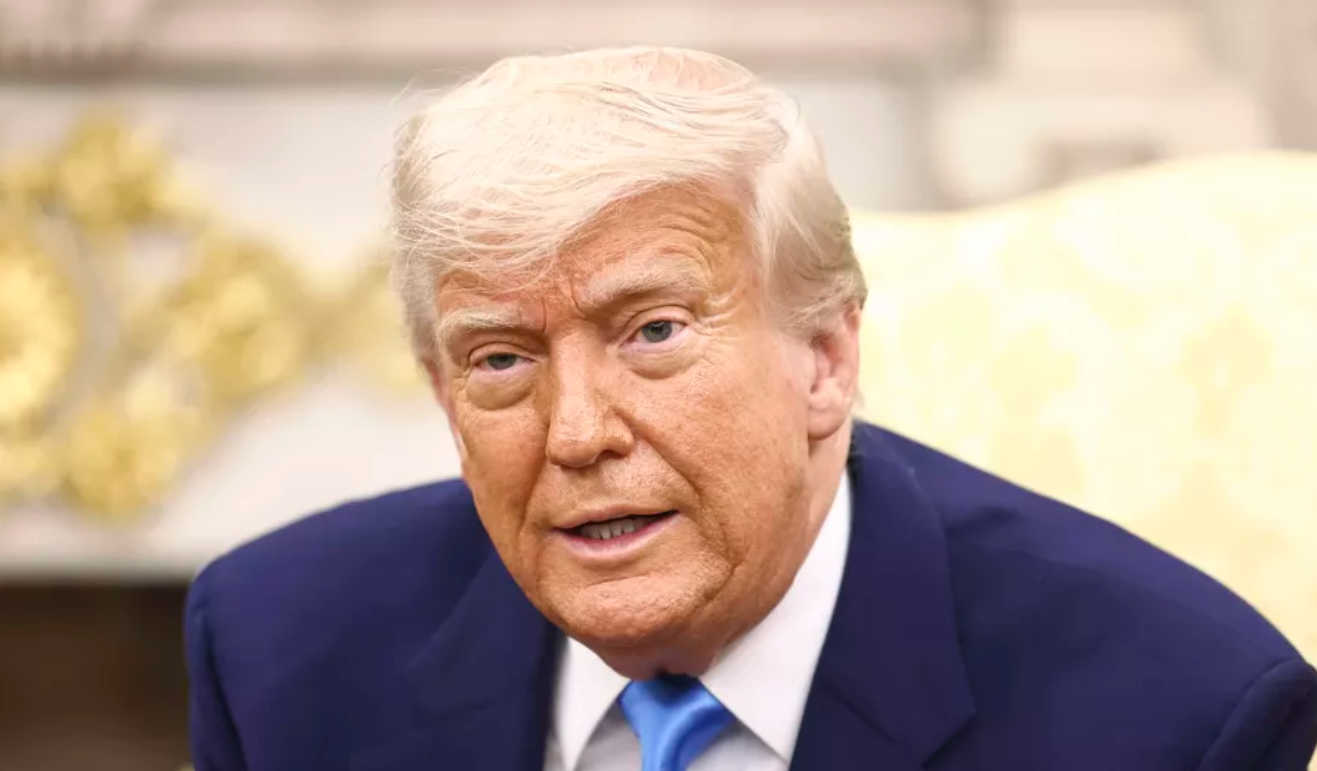
An image which may or may not be related to the article. FREEPIK
Putin hasn't shifted - Trump's public persona has
Summary:
Donald Trump spent the past few days blasting Vladimir Putin on Truth Social, calling the Russian leader “absolutely CRAZY” on Sunday and warning on Tuesday that Putin is “playing with fire” and would already be facing “REALLY BAD” consequences were it not for Trump's restraint.
And here we are
Russia's war-time behaviour is exactly what it has been for more than three years: relentless missile and drone strikes on Ukrainian cities while the Kremlin ignores Western threats. What has changed is that Trump's televised bravado now comes across as empty-Putin keeps bombing, and nothing in U.S. policy shifts.
Inside the White House, aides admit the “golden bridge” Trump once offered Moscow is close to being burned. Administration officials quoted by Politico say the president still cannot decide whether to impose meaningful new sanctions, while Kurt Volker, his own former Ukraine envoy, doubts he ever will.
Congress is trying to fill that vacuum with a punishing idea: secondary tariffs of 500 % on every import from any country that continues buying Russian oil, gas or uranium. Analysts note the plan would hit U.S. allies-and even the United States itself-almost as hard as it would Russia, which is why it remains stalled on Capitol Hill.
Europe has watched the drama turn into an excuse for passivity. Germany’s new chancellor, Friedrich Merz, conceded during a Helsinki visit that recent diplomatic pushes have “failed” and that the war’s end is distant. Until Berlin, Paris, London and Brussels put real economic pressure on the Kremlin, Putin can comfortably wait for Trump’s next outburst.
From ‘MAGA’ to malaise
Trump vowed to “make America great again,” but his record so far has rattled the very alliance network that once underpinned U.S. power. A barrage of blanket tariffs-average duties now sit near 22 %, the highest since 1910-has turned trade partners into reluctant adversaries and injected fresh uncertainty into a fragile global economy, according to the IMF and market analysts.
The price is visible everywhere: diplomatic leverage lost, friends alienated, investment plans frozen. When allies cannot trust Washington’s word, they hedge elsewhere-something both Beijing and Moscow exploit with evident satisfaction.
Accountability must follow
A president’s social-media tirades do not stop cruise missiles. If Trump truly wants to halt the war he must back rhetoric with painful measures-financial, technological and personal-that squeeze the Kremlin’s ability to wage it. Failing that, European leaders must act without him.
Finally, many jurists argue that the full spectrum of Trump’s decisions-on Russia, on sanctions left unused, on chaotic trade wars that weakened U.S. interests-deserves rigorous post-presidency investigation. If clear violations of law or constitutional duty emerge, criminal accountability should follow. Democracy is strongest when even its most powerful servants know they are not above the law; it will be weaker still if demonstrable abuses go unexamined.
Words shouted into the digital wind won’t ground a single Russian missile. But sustained, law-bound pressure-and the promise of real accountability-just might.
Russia's war-time behaviour is exactly what it has been for more than three years: relentless missile and drone strikes on Ukrainian cities while the Kremlin ignores Western threats. What has changed is that Trump's televised bravado now comes across as empty-Putin keeps bombing, and nothing in U.S. policy shifts.
Inside the White House, aides admit the “golden bridge” Trump once offered Moscow is close to being burned. Administration officials quoted by Politico say the president still cannot decide whether to impose meaningful new sanctions, while Kurt Volker, his own former Ukraine envoy, doubts he ever will.
Congress is trying to fill that vacuum with a punishing idea: secondary tariffs of 500 % on every import from any country that continues buying Russian oil, gas or uranium. Analysts note the plan would hit U.S. allies-and even the United States itself-almost as hard as it would Russia, which is why it remains stalled on Capitol Hill.
Europe has watched the drama turn into an excuse for passivity. Germany’s new chancellor, Friedrich Merz, conceded during a Helsinki visit that recent diplomatic pushes have “failed” and that the war’s end is distant. Until Berlin, Paris, London and Brussels put real economic pressure on the Kremlin, Putin can comfortably wait for Trump’s next outburst.
From ‘MAGA’ to malaise
Trump vowed to “make America great again,” but his record so far has rattled the very alliance network that once underpinned U.S. power. A barrage of blanket tariffs-average duties now sit near 22 %, the highest since 1910-has turned trade partners into reluctant adversaries and injected fresh uncertainty into a fragile global economy, according to the IMF and market analysts.
The price is visible everywhere: diplomatic leverage lost, friends alienated, investment plans frozen. When allies cannot trust Washington’s word, they hedge elsewhere-something both Beijing and Moscow exploit with evident satisfaction.
Accountability must follow
A president’s social-media tirades do not stop cruise missiles. If Trump truly wants to halt the war he must back rhetoric with painful measures-financial, technological and personal-that squeeze the Kremlin’s ability to wage it. Failing that, European leaders must act without him.
Finally, many jurists argue that the full spectrum of Trump’s decisions-on Russia, on sanctions left unused, on chaotic trade wars that weakened U.S. interests-deserves rigorous post-presidency investigation. If clear violations of law or constitutional duty emerge, criminal accountability should follow. Democracy is strongest when even its most powerful servants know they are not above the law; it will be weaker still if demonstrable abuses go unexamined.
Words shouted into the digital wind won’t ground a single Russian missile. But sustained, law-bound pressure-and the promise of real accountability-just might.
 muppazine
muppazine